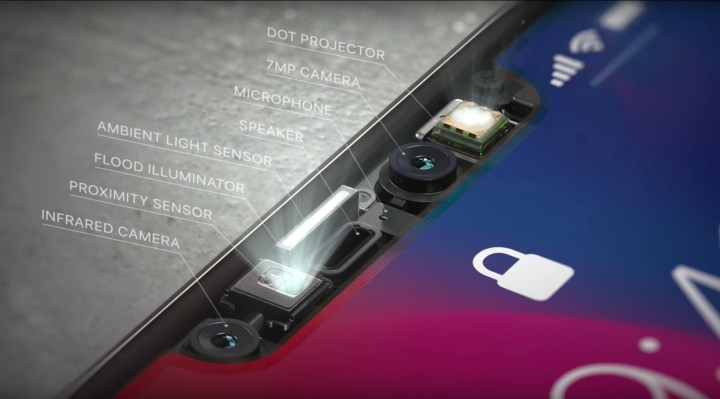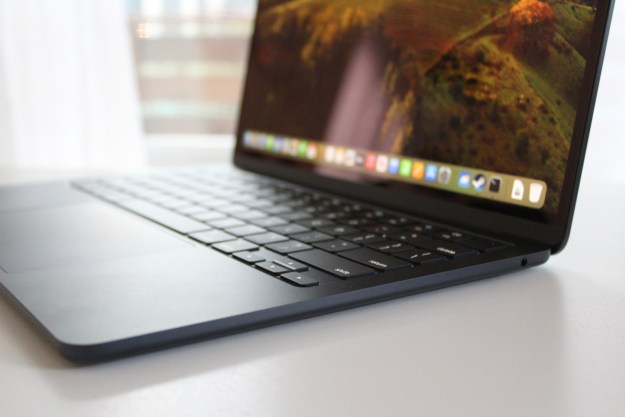
The patent details plans for a device which could sit atop a Mac like a webcam, and detect not only your face but your movements. This implementation, as a peripheral, seems unlikely for an Apple product though. Given how TouchID was integrated into the latest MacBook Pro lineup, rather than sold as an add-on, it seems more likely that Apple would embed a TrueDepth-like camera into a new lineup of Macs and MacBooks.
The images in the patent detail more than just using the camera to unlock your computer though. The patent describes the use of gestures like pushing and swiping to control on-screen elements, similar to how Kinect owners could control the on-screen interface on the Xbox One with simple gestures. Additionally, the patent suggests that users might couple FaceID with gestures to unlock compatible devices, adding another layer of security.
“An unlock gesture enables the user to engage a locked non-tactile 3D user interface, as pressing a specific sequence of keys unlocks a locked cellular phone. In some embodiments, the non-tactile 3D user interface conveys visual feedback to the user performing the focus and the unlock gestures,” the patent reads.
While this is all just speculation at this point, the patent comes at an interesting time for Apple. With the recent release of the iPhone X, FaceID is a technology that’s becoming as familiar and reliable as TouchID was. Despite the fact that it took a while for Apple to roll it into the MacBook Pro, things might move quicker with FaceID given Apple’s preference for unified functionality across all its devices. While we might not see it this coming year, it’s entirely possible we could see a FaceID-enabled MacBook or iMac sooner rather than later.
Editors' Recommendations
- MacBook Pro OLED: Here’s everything we know so far
- MacBook Pro 16 vs. MacBook Pro 14: The important differences
- The case for buying the M2 MacBook Air over the M3 model
- Which color MacBook should you buy? Here’s how to pick
- Why you should buy a MacBook Air instead of a MacBook Pro


